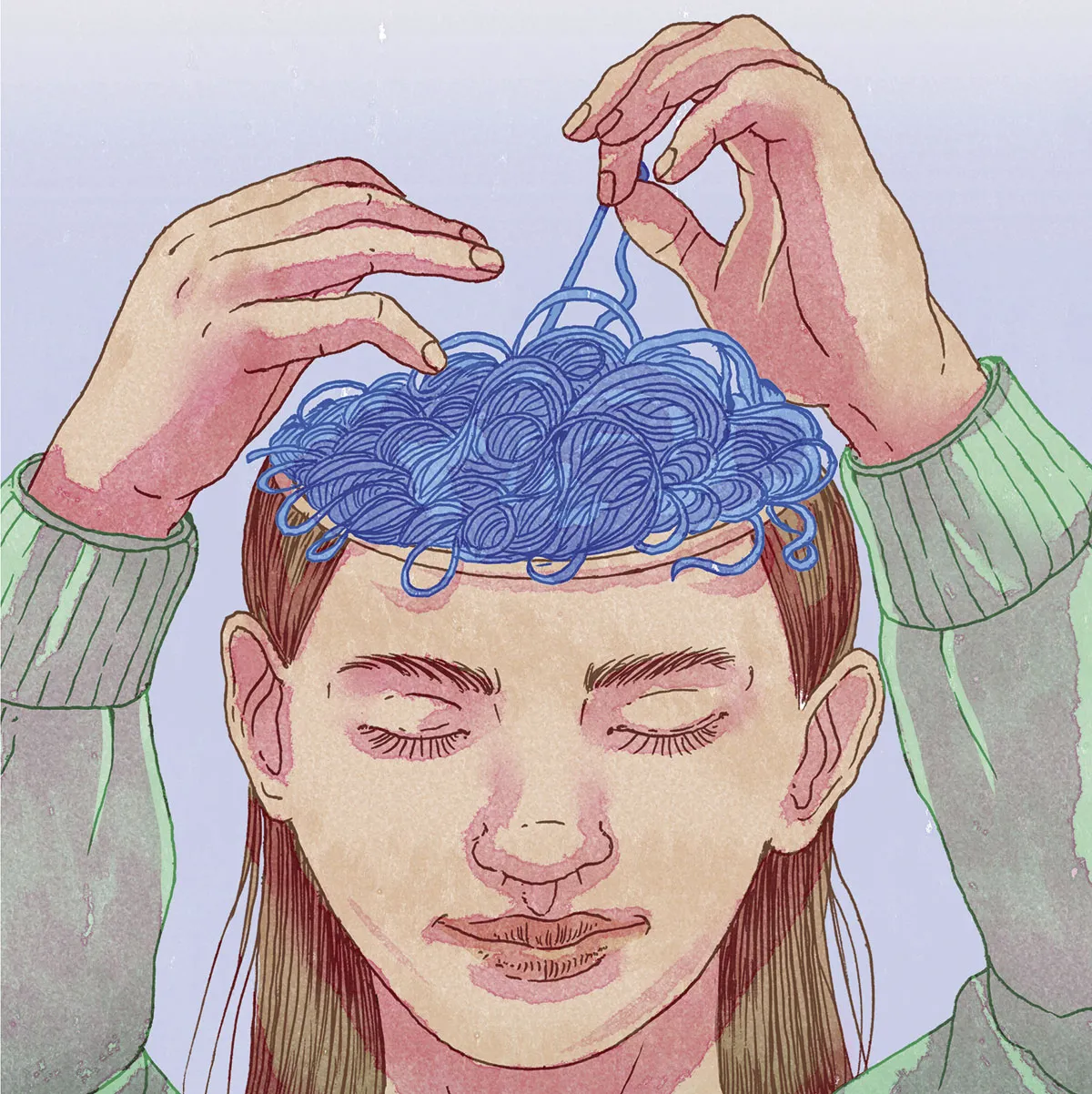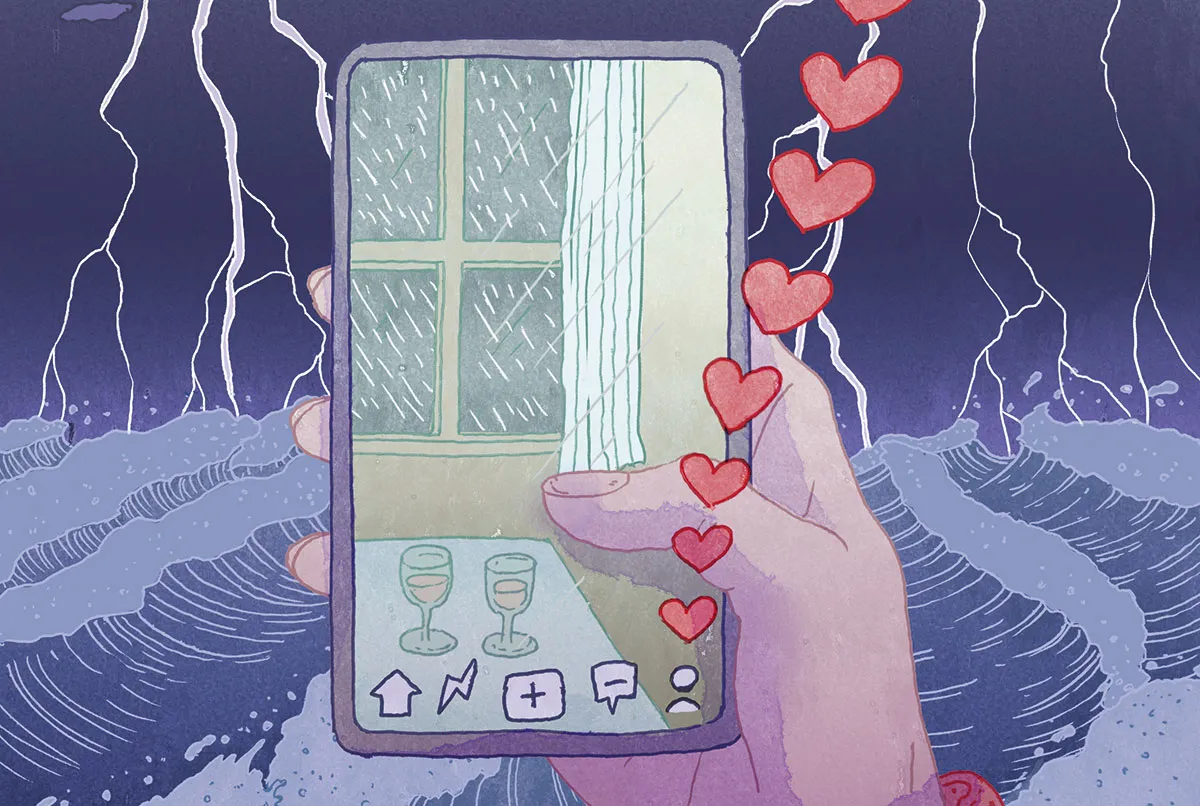If you’re struggling with your mental health, what are you meant to do about it? Thanks to many campaigns dedicated to it, ‘awareness’ of mental health concerns is rising all the time.
And that’s good. Awareness is only the beginning, however. It’s all well and good to tell people it’s ‘time to talk’, or to insist there’s no shame in asking for help, but what if that help isn’t forthcoming?
This isn’t a hypothetical. For years now, UK mental healthcare has been in a poor state, as damning statistics show. 40 per cent of mental health trusts are dangerously understaffed.
Just 14 per cent of crisis patients report receiving all the care they need. Waiting times often stretching to over a year mean 75 per cent of mental health patients have to resort to emergency services, which are already overstretched and ill-equipped to deal with such cases.
And despite mental health problems affecting 1 in 6 people, and getting progressively worse all the time, there’s shockingly little enthusiasm from those in power to deal with the issue in any meaningful way, beyond trite slogans and empty promises.
As a result, it’s no wonder that many people end up looking beyond established healthcare systems for help and support.
Whether it be via patient communities, online resources, new technologies, alternative therapies, or whatever, you can’t really blame people for taking their mental health matters into their own hands. Because what choice do they have?

An unavoidable outcome of this, however, is that many people who, via the use of the resources they do have access to, end up figuring out their own diagnosis and what to do about it.
This is arguably just another manifestation of self-medicating, a practice that’s been around since before mainstream medicine.
Unfortunately, self-medication can often make matters worse. Consider how many addictions stem from someone desperate for relief from a pre-existing malady.
The point is, while self-diagnosis of mental health issues is both inevitable and in many cases essential, it’s often overlooked how, thanks to the way our brains work, it can have negative, harmful outcomes. Particularly in our modern technological world.
The difficulty of diagnosis
Experiencing a mental health issue is hard enough on its own, but not knowing what it is creates a great deal of uncertainty, which causes our brains considerable stress.
And stress is a key factor underlying many common mental health issues. So, anything that removes or reduces uncertainty can help alleviate the resultant stress.
A medical diagnosis is one way to achieve this. If the ensemble of debilitating thoughts or disruptive moods you’re experiencing suddenly has a name, and a range of specific criteria determined by the world’s leading experts, that’s reassuring. It can make people feel that their problems are both normal and understood.
But diagnosing a mental health condition is a tricky, complex process, even for trained professionals. Hence, when enthusiastic ‘armchair experts’ stick their oars in, it rarely ends well.
If people end up adapting and altering their behaviour to better deal with a mental health self-diagnosis, however it’s arrived at, that’s understandable. But what if that diagnosis is wrong? It may still provide a comforting relief from uncertainty, but any changes made based on it can make matters more confusing, if not actively worse.
For instance, someone may self-diagnose depression and subsequently persistently fight against, or ignore, their ‘irrational’ negative feelings. Makes sense, right?
But what if they’ve actually got bipolar disorder? Even trained professionals regularly misdiagnose that. And if there’s one thing that’ll make a manic episode worse, it’s suppressing any feeling that you’re doing something wrong.
That’s a very crude example, but the complex, variable nature of mental health disorders (and how effective interventions can be) means self-determined diagnoses and interventions could end up in any number of unhelpful places.
Read more:
- The ultimate anxiety guide: The 6 biggest questions about worrying, answered by a psychologist
- Phone call anxiety: Simple ways to overcome your telephobia, according to psychology
- Can yoga really decrease stress and anxiety?
Worst-case scenarios
Even with the best intentions, expecting someone with mental health issues but zero clinical training to be objective, thorough and rational, while wading through vast swathes of complex, often-conflicting information, in an attempt to self-diagnose, is a considerable, and unreasonable, ask.
Among other things, people will inevitably be prone to confirmation biases – even extensively trained clinicians are.
It means that, when searching for answers, information that matches what people want to hear, and/or what they already think, will be perceived as more ‘correct’. The self-diagnosis they end up with will be the result of such flawed analysis.
This won’t necessarily be a ‘positive’ bias. As anyone familiar with the ‘Doctor Google’ phenomenon will know, people self-diagnosing often gravitate towards a worst-case scenario.
This may stem from the typical brain’s inherent negativity bias, where negative or dangerous possibilities instinctively attract the most attention.
Our brains self-defence mechanisms are constantly looking for the greatest threats and risks. That’s why you latch on to ‘three weeks to live’ rather than ‘moderate allergic reaction’ when googling your symptoms.
Also, depression, the most common mental disorder, amplifies this negativity bias, so arriving at an unhelpful worst-case scenario self-diagnosis is an even more likely outcome.
Self-diagnosis, self-worth
Mental health stigma, while in decline, is still very much a thing, especially in certain less-liberal cultures or communities. Among other things, it means those experiencing mental health problems end up with less help and concern than they legitimately need, which exacerbates matters.
But as well as this, humans are intensely social creatures, meaning we find rejection psychologically painful and distressing, to the extent that it can make mental disorders and issues even worse.
Patient communities are an important aspect of the modern mental healthcare experience. One of the positives of the internet and social media is that they readily connect vulnerable and isolated people, who can now easily, and safely, share their experiences with like-minded folk who’ve gone through similar things. The benefits of this can’t be overstated.
But while such communities can be a vital lifeline in helping people deal with their condition, being part of a large, enthusiastic, like-minded group has weird effects on humans.
The group or community we feel part of most regularly becomes an integral part of our identity. But because we want to impress the others we identify with, we tend to amplify and exaggerate the qualities we have that the group approves of, so as to increase our status.
If we’re part of a weight-loss group, we work harder to lose the most weight. If we’re involved in a Star Wars fan community, we go out of our way to show that we love Star Wars the most.
Unfortunately, this can lead to irrational, even harmful extremes. There are countless examples online of prominent figures, from across the ideological and cultural spectrum, who went from being relatively normal to disgorging the most baffling or hateful views, thanks to years of constant reinforcement from their supporters and peers who agree with and encourage, and therefore reinforce, such things.
Mental health communities are just as vulnerable to this phenomenon as any others. Many will know of at least one person whose mental health issues have gone from ‘a problem they’d like to have addressed’ to ‘the main aspect of their identity’.
There’s nothing inherently wrong with this, but it can lead to unhealthy places. Dismissing therapies or other interventions, exaggerating symptoms, setting a bad example to other vulnerable types. Who knows what else.
It can certainly muddy the waters further for those in vulnerable states looking for insight into their own potential issues. Thinking ‘This diagnosis would explain what I’m experiencing’ can be less persuasive than ‘This other diagnosis would mean I’m accepted and liked by this particular group’. And that’s not necessarily a better option.
History is rife with examples of mass psychogenic illness, where symptoms spread through a population, despite having no pathogen or organic cause. These usually take the form of physical disturbances (dancing, fainting, screaming, for example) and they occur exclusively in populations that are in close physical proximity.
Until now, it seems. Recent reports reveal a psychogenic phenomenon where young girls displayed Tourette’s-like tics, despite having none of the signature traits of Tourette’s.
The consensus is that the cause of these symptoms is actually TikTok, as many of the girls afflicted report having watched videos of influencers who claimed to have Tourette’s and displayed the traits.
Growing minds

Before anyone starts crowing about how social media is corrupting the youth, this isn’t that surprising.
Humans subconsciously mimicking others’ movements, gestures and speech is an everyday occurrence, thanks to the way our brains work.
On top of this, adolescents, a major TikTok user base, are in a key stage of neurological development. Their emotions are powerful, their mental wellbeing is vulnerable, they’re still figuring out and forming their overall identity, and are especially sensitive to peer approval.
So, when faced with a charismatic, sympathetic, relatable, engaging stranger with a prominent platform (which is to say many a mental health influencer), adolescents are particularly likely to respond strongly to them and, perhaps unintentionally, emulate them. And if said influencer displays physical traits, such as tics... it’s basically a perfect storm for flawed self-diagnosis.
And yes, Tourette’s is a neurological condition, not a mental one. But the neurological, the psychiatric and the neurodivergent are often used interchangeably online, which confuses matters further.
This reveals another aspect that warrants concern: when people try to self-diagnose, where is their information coming from? For professional clinicians, there are many rules and regulations in place, and diagnostic information has to be approved by countless experts.
Online… Not so much. If you’re watching a mental health influencer explain things on TikTok, are they a trained professional? Someone with extensive lived experience of a condition sharing their perspective? Or maybe even someone exaggerating (or actively lying about) a condition for clicks and reactions?
Telling them apart is an increasingly big problem. And there’s seemingly very little oversight of this issue, on any of the major social media platforms.
How is anyone meant to accurately self-diagnose when the people they’re getting their insights from are giving out skewed or unreliable information? Or those people are more concerned with boosting their image, no matter what effects it may have on the mental wellbeing of others?
This is important, because a flawed self-diagnosis is potentially harmful. Not just because it may lead to unhelpful behaviours and thinking, but because there’s evidence implying that emulating a mental health condition, for whatever reason, can actually lead to developing it for real.
That’s the thing with mental health issues: if you genuinely believe it’s a problem, then, to a not-insignificant extent, it is.
What can we do?
So, an inaccurate self-diagnosis can lead to a number of bad outcomes, including developing that wrong diagnosis for real.
Thankfully, there are a few possible ways to intervene here. For one, if an individual can be made to recognise and accept that their self-diagnosis is ‘inaccurate’, it can enhance the efficacy of the treatments administered for it.
But even if that doesn't work, if they become convinced that a certain mental health diagnosis is correct, then the treatments for that diagnosis are seemingly also effective, whether they be cognitive, pharmaceutical, or any other type
of intervention.
In truth, though, the underlying mechanisms of psychogenic disorders are still being studied, so the evidence base for effective treatments of them is rather limited.
As such, prevention would be a better approach than cure. Greater oversight of social media and other platforms, to prevent the misinformed or ill-intended distorting the important information supplied by relevant experts, or at least enhancing the ability to tell such people apart, would be a good start.
And in general, more reliable, robust but accessible resources of data and insights about mental health, which are both engaging and comprehensible to the layperson seeking answers, may help improve matters further.
This will hopefully be enhanced further by the introduction, and more widespread adoption, of therapeutic software. Several new digitally enabled therapies have recently been recommended by the National Institute for Health and Care Excellence (NICE).
If these, and others in development, become more normal, it would mean people with mental health issues have much better access to professional and effective resources, without having to leave their homes.
The issues and problems of self-diagnosis via the internet would obviously be less prevalent, if the same internet also made robust and reliable mental health tools more readily available, and identifiable.
Let’s make one thing clear, however: from the many years of the ‘disease model’ being dominant in psychiatry (meaning patients had to take a passive, submissive role in their treatment), to the fact that it was only a few decades ago that homosexuality was officially deemed a mental illness, the medical approach to diagnosing mental health conditions has been far from perfect.
Many have reservations about the inflexible and limited approach of medical diagnosis, and rightly so. Some of them are clinical psychologists, who take a markedly different approach.
So, even if the medical mental health system were fully funded and accessible (which it very much isn’t), self-exploration and analysis by the individuals affected by mental health issues would still be very helpful, if not essential.
But, as we’ve seen, self-diagnosis comes with risks. The medical approach may not be perfect, but it doesn’t automatically follow that you should throw the baby out with the bathwater.
In an ideal world, medical understanding and oversight would exist in perfect harmony with the individual journeys and explorations of patients, working together to understand, diagnose and deal with mental health conditions.
Of course, in a perfect world, I wouldn’t even need to point that out. That’s my diagnosis, at least.
Read more:
